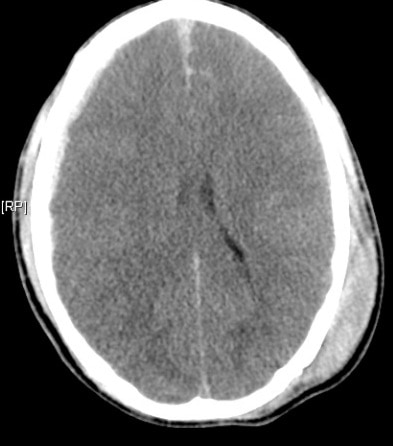 When I worked in New Zealand I was involved in flying our head injured patients to our neuro centre. A few came back after being entered in this trial with a hole in the head and a bit of the skull in the freezer. It was all new to me at the time. I remember being told this trial was underway so it’s kind if cool to finally see the results
When I worked in New Zealand I was involved in flying our head injured patients to our neuro centre. A few came back after being entered in this trial with a hole in the head and a bit of the skull in the freezer. It was all new to me at the time. I remember being told this trial was underway so it’s kind if cool to finally see the results
I have fairly limited clinical experience in this, I’ve given the mannitol and the hypertonic saline and (largely avoided!) fiddling with CO2s and see what happens to the ICP.
[If you want someone who really knows what they’re doing check out the Neuro-ICU podcast]
It’s fascinating physiology but it all seems kind of a zero sum game. It’s been a while since I looked at it but ICP control seems to be a zero-sum game really.
The classic being lowering the ICP by lowering the CO2 which reduces the ICP but also reduces the blood flow to the brain worsening the ischemic insult you were trying to avoid.
Cracking open the brain and letting it swell seems like a great way of avoiding these problems.
To the trial
Patients
- 15-59 years
- diffuse brain injured patients, no evacuatable lesions here
- note recruitment was fairly slow over 8 years
- they assessed 3500 for the trial and took only 150 (most excluded to have a lesion evacuated or the ICP settled itself)
- as expected mainly young males in MVAs
- overall mortality rate roughly 20% so think about whether that’s sicker or less sick than who you treat with comparable injuries
Interventions
- everyone got the usual ICP treatment if the ICP passed 20mmHg
- randomised within 72 hours of admission to either continuation of the same or a craniectomy
- the protocol allowed the non-craniectomy group to cross-over if they failed the conservative treatment (which is a little naughty trial-wise but unavoidable)
Outcomes
- started as composite (arrgghh stop saying the word…) of death and bad outcome but changed during the trial (also a tad naughty) to neuro outcome at 6/12
Results
- 20% crossed from the no surgery to having surgery. 20% is a substantial number and means the results are probably a bit skewed
- the ICP was much better in the surgery group (wa hey!)
- poor functional outcome at 6/12 was 70% v 50% in favour of conservative treatment (boo!)
- mortality was essentially the same (though not powered for that type of thing)
Comment
If ICP is so important then fixing it should make a difference. It doesn’t seem to. Maybe the outcome determining factor is the primary brain injury and the inductive reasoning (that because hypoxia or low BP or high ICP in head injuries is known to make head injuries worse then not having that will make things better) just doesn’t hold up.
(my friend Vinny will hopefully keep me right if I’ve got that inductive bit wrong!..)
I suppose this is another great example of something that seems like a great idea physiologically but doesn’t quite pan out in practice. The cupboard where we’re keeping all such ideas seems to be getting pretty full. Such is the nature of the advance of medical knowledge.
UPDATE
Intensive Care Network have published a great series of videos by one of the guys involved in the trial (Simon Finfner). There’s 3 parts to it and you need to register with the website (free) to get the last 2. It’s well worth it.
He covers most of the similar points but covers the naughty bit about changing the primary outcome in a bit more detail.
[youtube http://www.youtube.com/watch?v=p3elLTy8MOg?rel=0&w=425&h=349]
FURTHER UPDATE
I see Cliff Reid has posted on this too with a link to another ongoing trial (that I was unaware of). Makes the important point (also made in the videos above) that the DECRA study enrolled lowish ICP (20mmHg) and the RESCUE-ICP study is taking patients with higher ICPs.

Pingback: The LITFL Review 021 - Life in the FastLane Medical Blog